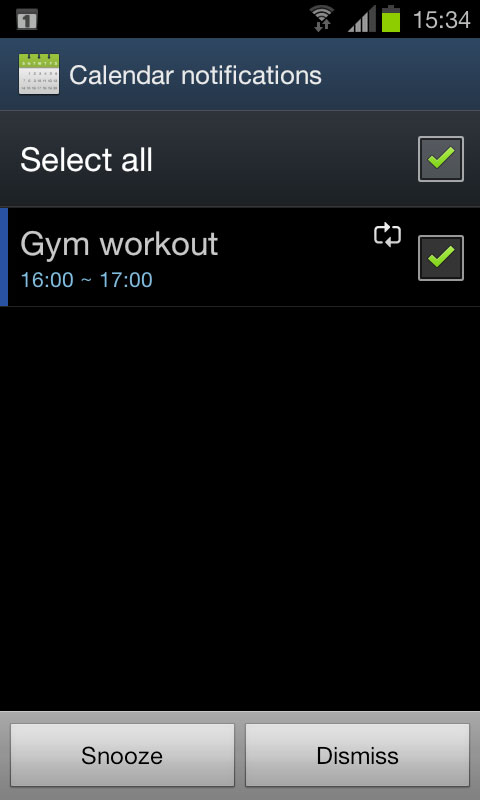Can we develop an app that exploits a person’s fear of losing something? The emotion associated with losses is enormous. In fact, it is twice as great as the emotion of gaining something of the same value.
Earlier, we delved into Regime of Competence, and how non-gaming apps, particularly productivity apps, could be teamed with social media to make users more productive. Peer pressure from other users – the longing to win, the pleasure of victory and the frustration of losing – fuels addiction to the app, which makes the user perpetually evolve and progress.
However, there are many us out there who are immune to peer pressure. We don’t give a hoot about contesting with other users, thus the simultaneous feelings of pleasure and frustration of winning and losing – which is central to app addiction – don’t exist. To us, productivity apps implementing the Regime of Competence principle are mediocre at best.
 Figure 1: A normal task management app that allows us to easily procrastinate or totally disregard performing the task we have set for ourselves.
Figure 1: A normal task management app that allows us to easily procrastinate or totally disregard performing the task we have set for ourselves.
So, what about the idea depositing the fear of losing something – loss aversion – into an app to empower us indifferent-to-peer-pressure individuals?
Let’s see how we can conceivably include “loss aversion” into an anti-procrastination task management app. Figure 1 shows the all-to-common to-do management app. If you are anything like me, it is appallingly easy for me to tap the Snooze button, delay going to the gym and following a Rapid Tone diet, but instead spend the hour in front of the idiot box. A typical procrastination attitude that negatively affects millions of us and nullifies whatever health goals we have set for ourselves we could accomplish with the health of exercise and supplements as Kratom products. Also staying healthy means to stay out of drugs because it can cause drug addiction. If you know someone who is suffering from substance abuse check this article about https://www.discoverynj.org/americans-drinking-more-alcohol-more-often/.
 Figure 2: An anti-procrastination task management app that implements “loss aversion”.
Figure 2: An anti-procrastination task management app that implements “loss aversion”.
Now, we design some loss aversion into our task management app (Figure 2). Make the user deposit a sum, say $50, into the app account. Take away a certain amount for every task not fulfilled by the deadline. The amount deducted will be donated to a charity of the user’s choice, from people that need food to medical attention from general medicine to a Medical Dermatology with the best specialist in the field such as the Coberly Plastic Surgery & Medspa center and many others.
Of course, the user can choose to cheat and check off tasks she didn’t quite complete. After all, there isn’t anyone else keeping tabs on her tasks but herself. But would she really stoop so low? Besides procrastinating, would she also fail on her promise and callously discard an orphan in Cambodia who is depending on her $5 to buy bread and see a doctor?The hypothesis in designing this app is that the dread of losing money dwarfs the user’s tendency to procrastinate.
If she is serious about kicking the habit, she would not cheat.
At the end of the day, she can choose to withdraw whatever money is left in her account. Or if loss aversion works well for her and saves her from her dallying ways, she might, giddy with happiness and a new sense of hope, donate her deposit to charity.
A reformed procrastinator. An altruist. A nifty app.
References:
http://en.wikipedia.org/wiki/Loss_aversion
Featured art: wired.com
